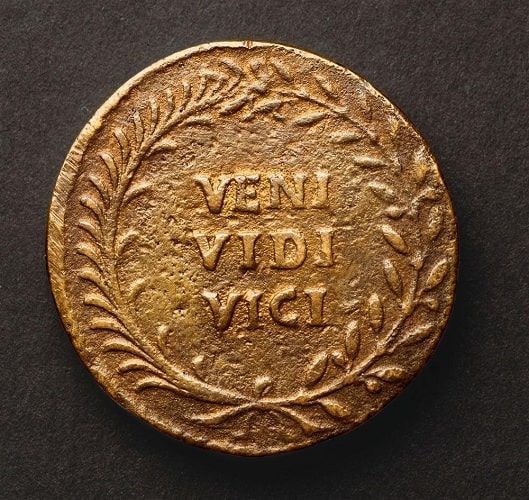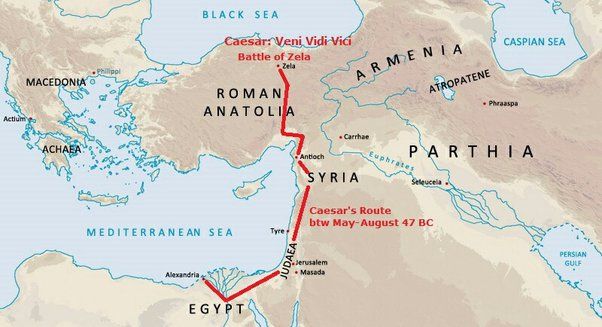Julius Caesar and the origin of his famous phrase "Veni, Vidi, Vici"
People often use Julius Caesar's famous phrase "Veni, Vidi, Vici" to mean that something was done quickly and successfully.

In 47 BC, at the end of July and beginning of August, in the area of Anatolia, which is now Turkey, the Roman legions led by the general and consul Julius Caesar beat the eastern army of King Pharnaces II, monarch of the Bosporus, in the Battle of Zela.
It was a great military victory, especially when you consider that Pharnaces II's forces were much stronger than the Romans' and that the same eastern army had already used the Roman civil war to beat the troops of Caesarian governor Domitius Calvinus at the battle of Nicopolis in what is now Armenia in December 48 B.C.
After a confrontation in which Pharnaces II, displaying unusual cruelty, ordered the castration of the few Roman soldiers who had survived the battle, Pharnaces II was boosted by his victory over the Romans and decided to retake Cappadocia. However, Julius Caesar, who was at the time in Alexandria, Egypt, with his mistress Cleopatra, decided to go out and meet him. He surprised him in Zela, which is a little further north.
King Farnaces II had by then occupied and fortified one of the hills of Zela, the same place where his father, King Mithridates VI, had defeated Pompey's Roman troops two decades earlier, in 67 B.C. Julius Caesar was at that time only a few miles away, organizing his military camp on another hill.
On the night of July 31, 47 BC, the forces of Pharnaces II began recklessly climbing the hill where the Romans were located to attack them using their falcate chariots and Pontic infantry. Julius Caesar then used his famous military instincts to tell his men to charge down the hill at the enemy, who was completely beaten as a result.

Julius Caesar's Total Victory at the Battle of Zela and the Legacy of "Veni, Vidi, Vici"
The victory of Julius Caesar's legions at Zela was total. The consul, who in a later report commented that he could not believe that a military leader had ordered to take "a hill in a disorderly manner, exposing himself to so much tactical danger," easily took the enemy camp and divided the spoils among his soldiers. With the help of about a thousand horsemen, King Pharnaces II narrowly escaped the Zela battlefield after losing and humiliating himself.
However, when he returned to his kingdom north of the Black Sea, he was killed by one of his allies. After his death, Caesar had a free hand to impose his peace terms throughout the region. Later, he told his men to go back to Italy, and not long after, he did the same. He did this because he knew that the whole eastern area had been taken back.

Later, according to the historian Suetonius, when he addressed the Senate to describe his recent victory over King Pharnaces II, Julius Caesar used his famous phrase "Veni, Vidi, Vici", a Latin locution that can be translated as "I came, I saw, I conquered", a phrase he had already said to his friend Amintsiya while in the Zile district of Tokat, in the northern region of Anatolia.
By the way, the phrase was an obvious boast on the part of Julius Caesar to remind the enemies of the Senate of his military prowess and the extreme speed with which he had defeated his eastern enemy. So, when Caesar celebrated his victories in Rome in 46 B.C., he made sure that the phrase above was on all the banners of the parade, where all the Roman citizens could see it.
Since then, the famous Latin phrase "Veni, Vidi, Vici" (I came, I saw, I conquered), which Julius Caesar said after the Battle of Zela, has been used to describe how quickly something was done well.




